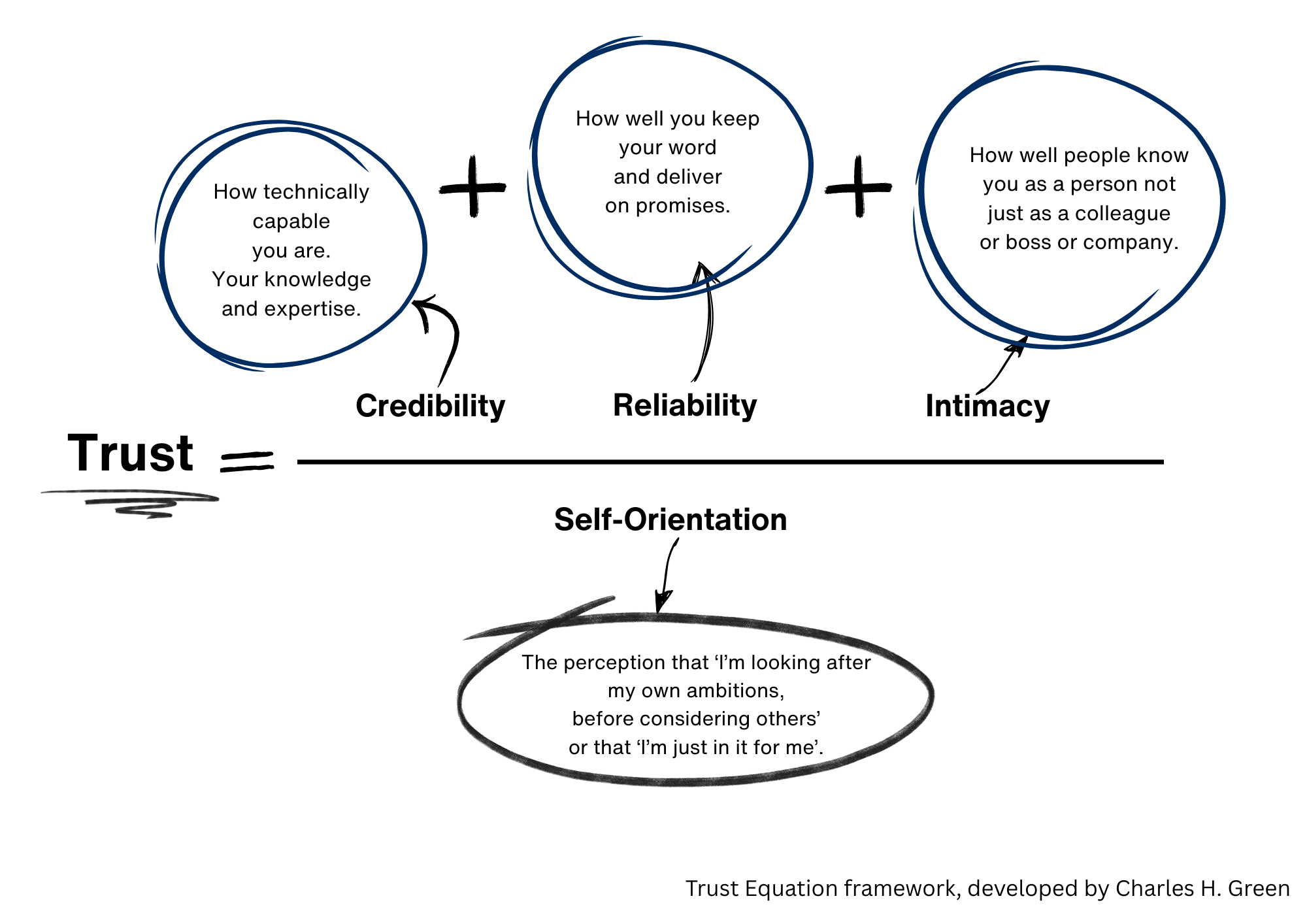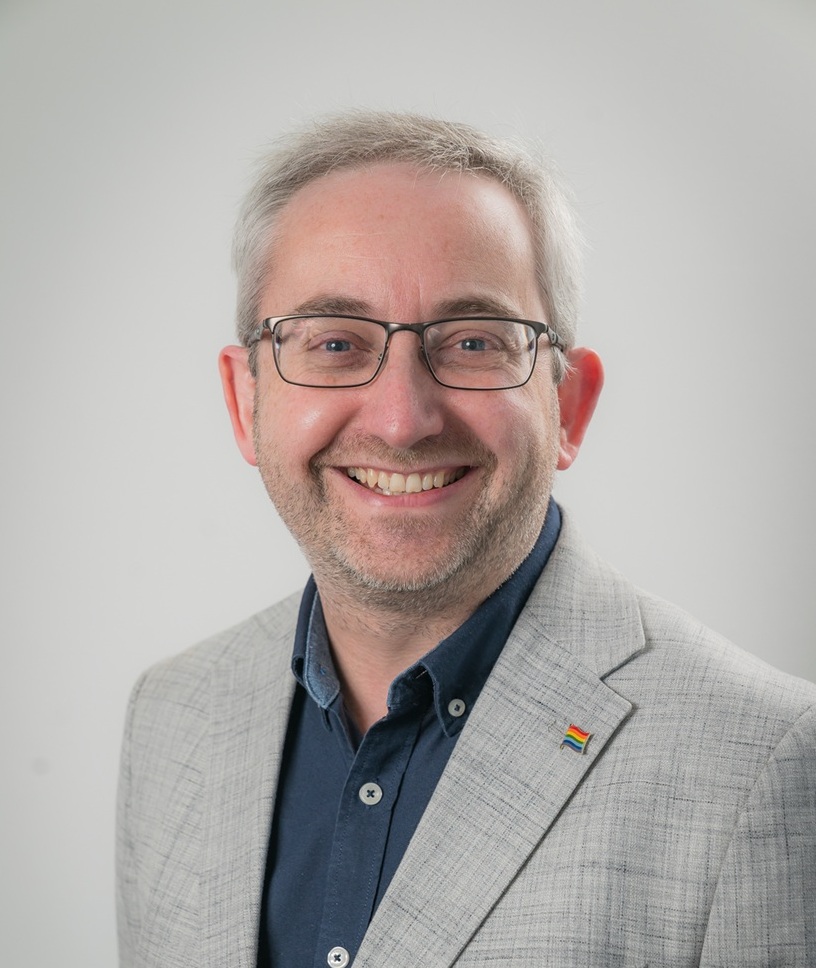Building trust: the human side of regulation
10 September 2025
Our Chief Executive and Registrar, Matthew Redford, explains the work the GOsC is doing to build trust with the profession and why we want to be more human in our approach to regulation.
In a recent blog I talked about the work the GOsC has been doing to improve the way we communicate and engage with the profession. I hoped this would go some way to showing the real face of the GOsC – a small group of dedicated staff who value the profession and who want to help support patient safety.
I want to expand on that further and explain why this is all so important for building trust with the profession.
Like osteopaths, my staff and I also complete our own professional development and, while attending a course recently, I came across a framework called the Trust Equation which breaks trust down into four components:

This resonated with me and offers a useful lens for examining how the GOsC works in partnership with osteopaths, patients and partner organisations. I want to give you my honest assessment of where I think GOsC stands up against this framework and what I think we need to do better.
Taking each of the components in turn:
Credibility
I believe we have credibility. Our track record of meeting all 18 of the Professional Standards Authority’s standards for fifteen consecutive years shows that the GOsC is a high-performing regulator. It also demonstrates just how effective regulation can be for the public we protect and the osteopaths we strive to support.
Reliability
We do what we say we will do to maintain professional and ethical standards; uphold the public’s confidence in osteopathy by holding osteopaths accountable to those standards; and champion a profession that is inclusive and welcoming for those from all backgrounds, and with all protected characteristics. So, to that end, I would suggest we are a reliable regulator and a reliable partner to our stakeholders.
Self-orientation
This means being primarily concerned with oneself over others, so the aim is to rate low for this. Our purpose is to protect the public and support the profession to deliver high-quality patient care, and in carrying out our role, I think we do demonstrate that we are concerned more with others within this context than ourselves. So when it comes to individual self-orientation, for my staff team and I, this is low.
Intimacy
Here's where I think we need to do better. When we talk about intimacy in this context, we mean human connection. Too often, we're perceived not as people doing important work, but as a faceless institution that can create anxiety and fear. We're viewed as the regulator in the proverbial ‘ivory tower’ rather than as individual human beings who are passionate about working with the profession through our regulatory remit.
I understand why this perception exists. When osteopaths interact with us, it's often during challenging times – these interactions, whilst necessary, can feel impersonal and daunting.
But here's what I want osteopaths to know: behind every email, every decision, every piece of guidance – there are real people. People who choose to work at the GOsC and who believe in the profession and in patient protection. People who understand that our decisions have an impact. People who care and want to build trust with you.
We know this will take time, but we remain steadfast in that ambition, which is why ‘Strengthening Trust’ is a key strategic priority for the GOsC.
In my recent blog I wrote about how we are seeking to work differently. But let me say again how we've already started some of this work through our weekly online drop-in sessions, new communication channels such as WhatsApp, and through our thinking about making the work of Council more visible and less London-centric.
But I know we can do more.
Our values as an organisation speak to this. We want to be collaborative, and we try to demonstrate this when working with our stakeholders. We aim to be respectful, genuinely listening and considering different perspectives. We strive to be influential in a positive way, supporting and developing those we work with. And we work hard to be evidence-informed, including evidence about how our approach affects the people involved.
Building intimacy in the trust equation doesn't mean compromising our regulatory standards: it means recognising that effective regulation happens through relationships, not just processes. It means acknowledging that when an osteopath rings us with a concern, there's often anxiety behind that call, and we need to respond with empathy alongside fulfilling our regulatory responsibilities.
What do you think?
I'm curious about your thoughts on this. How do you think we could be more human, more connected, more approachable whilst maintaining our regulatory effectiveness?
What would make you feel more comfortable engaging with us? How could we build the kind of trust that makes our regulatory relationship with you feel more like a partnership?
Perhaps it's about sharing more stories of why we chose to work in regulation. Maybe it's about being more present in your communities. It could be about creating more informal opportunities for dialogue, where the focus is on understanding rather than enforcement.
I'd genuinely love to hear your thoughts. How can we bridge this gap? How can we be both an effective regulator and a more human one? Your insights could help shape not just our approach, but the future of how regulation works in osteopathy. After all, we're all in this because we care about the same thing: ensuring that patients receive the best possible osteopathic care.



